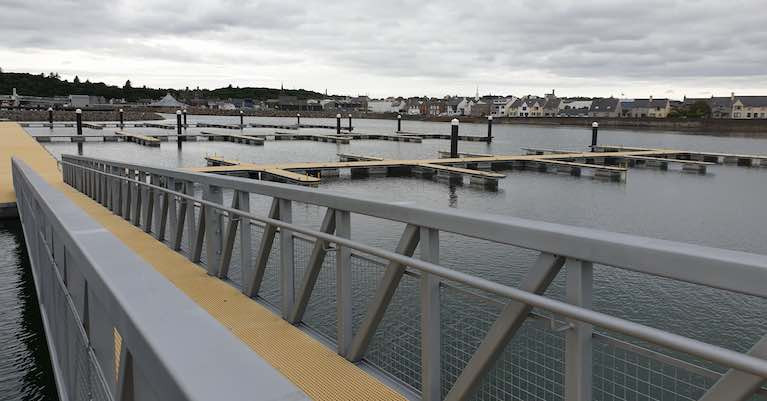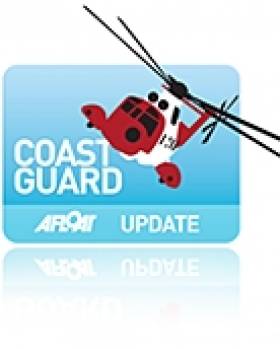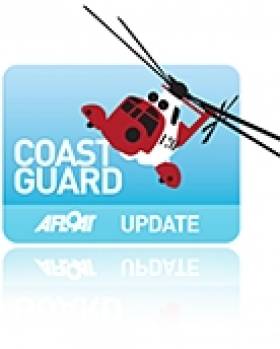Displaying items by tag: Stornoway
Stornoway Port Doubles Yacht Berths in £11m Investment in Newton Basin/Goat Island Development
Stornoway Port Authority, the primary port for the Outer Hebrides on the West coast of Scotland, will significantly increase the number of available berths for visiting leisure craft.
As part of the wider £11 million Newton Basin/Goat Island development, the Newton Marina will allow Stornoway to welcome more visiting yachts than ever before,
Stornoway Port Authority’s latest development allows the Port to significantly increase the number of available berths for visiting leisure craft. The existing marina on Cromwell St Quay, which is overlooked by the historic Lews Castle, will be the primary marina for accommodating these additional visiting vessels.
Stornoway has gained a strong reputation for providing a first-class harbour experience due to the customer service and variety of facilities on offer. A 24/7 fuel berth, WiFi, and quayside facilities including water and electricity, toilets and showers, laundry; ensures our modern marina facilities provide an ideal spot for vessels visiting the Hebrides.
A new 100-ton Roodberg boat hoist will be commissioned this year, providing the capability to lift a wide variety of boats in and out of the water. The Newton Basin/Goat Island development will also include a marine engineering workshop which will allow maintenance on vessels up to 24m in length within covered working areas. This building is due for completion late in 2021.
 The famous yacht Gypsy Moth moored at Stornoway Harbour
The famous yacht Gypsy Moth moored at Stornoway Harbour
The influx of yachts will provide a major boost to the local economy as more tourists than ever before are given the chance to visit the most picturesque beaches on the planet. Lewis and Harris are also famed for Harris Tweed and the 5000-year-old Callanish Stones.
Island hoppers and day sailors can take advantage of the restaurants and bars close to the harbour area, while there are supermarkets also within the vicinity of the marina – making it the perfect location to stop off and stock up.
As the main port of the Hebrides, Stornoway provides the perfect location for visitors to experience the unique Hebridean islands.
It is now easier than ever before to visit the Outer Hebrides, with the significant upgrade in the Stornoway facilities among a number of developments in nearby marinas. Visiting sailing vessels in the region can now also enjoy the new Castlebay marina in Barra, the Lochboisdale marina in South Uist, and the Lochmaddy marina in North Uist; while the area has welcomed the recent addition of Tarbert/Scalpay pontoons in Harris. As a result of these new marinas, the sailing distances between marinas in the Hebrides has been significantly reduced, ensuring a more positive sailing experience for those wishing to explore the Outer Hebrides
Alex MacLeod, Chief Executive of Stornoway Port Authority, said: “The opening of the Newton Marina marks a major milestone in our continuing development of the Harbour. The Newton Marina will allow the port to accommodate significantly more visiting vessels, all within our picturesque harbour.
“The recent increase in berths in the Outer Hebrides will allow even more people to explore and enjoy the wonders of these Atlantic Islands.”
Leisure craft berthing at Stornoway Harbour marina in The Hebrides has been boosted to 155 thanks to the completion of works by Offaly firm Inland and Coastal and the installation of 75 new marina berths in Stornoway's Newton Basin.
As Afloat reported in June, The midlands firm designed and built the new pontoons using its own GRP mini-mesh decking, giving the much needed additional berths excellent anti-slip properties.
Protected by a state-of-the-art breakwater, the new Scottish berths will welcome their first resident boats in the New Year.
Offshore energy sector
This month, the busy Irish marine firm is also exhibiting at RenewableUK’s virtual Global Offshore Wind event 2020 from 28-30 October. Inland and Coastal is in the Enterprise Ireland pavilion, showcasing its 'Operational and Maintenance Base' pontoons for the offshore energy sector.
Uk Coastguard Announces Public Meeetings to Discuss Modernising Service
The purpose of the meeting is to provide an opportunity for the local communities around the existing Maritime Rescue Coordination Centres (MRCCs) to hear more about the proposals, ask questions of MCA representatives and have the opportunity to express their views.
Each meeting will be independently chaired and will begin at 7:30pm, expecting to draw to a close by 9pm.
Humber - Monday, 21 February 2011, The Spa, South Marine Drive, Bridlington, East Yorkshire. YO15 3JH
Thames - Tuesday 22 February 2011, Columbine Centre, Princes Esplanade, Walton on the Naze, Essex. CO148PZ
Yarmouth - Wednesday 23 February 2011, Great Yarmouth Town Hall, Hall Plain, Great Yarmouth, Norfolk. NR30 2QF
Aberdeen - Wednesday, 23 February 2011, Pittodrie Stadium, Pittodrie Street, Aberdeen. AB24 5QH
Forth - Thursday, 24 February 2011, Waid Academy, St Andrews Road, Anstruther, Fife. KV10 3 HD
Dover – Thursday, 24 February 2011, Dover Town Hall, Biggin Street, Dover, Kent. CT16 1DL
Shetland - Monday, 28 February 2011, Town Hall, Upper Hillhead, Lerwick, Shetland. ZE1 0HB
Stornoway - Tuesday, 1 March 2011, Nicholson Institute, Springfield Road, Stornoway. HS1 2PZ
Solent - Tuesday 1 March 2011, Thorngate Halls (Community Centre), Thorngate Halls, Bury House, Bury Road, Gosport, Hampshire. PO12 3PX
Holyhead - Wednesday, 2 March 2011, Holyhead High School, Alderley Terrace, Holyhead, Gwynedd, Isle of Anglesey. LL65 1NP
Clyde - Wednesday 2 March 2011, Port Glasgow Town Hall, 35 King Street, Port Glasgow. PA14 5HD
Belfast - Thursday, 3 March 2010, Marine Court Hotel, 18-20 Quay Street, Bangor. BT20 5ED
Liverpool – Thursday, 3 March 2011, Southport Convention Centre, The Promenade, Southport. PR9 0DZ
Milford Haven – Friday, 4 March 2011, Cleddau Bridge Hotel, Essex Road, Pembroke Dock. SA72 6EG
Swansea – Monday, 7 March 2011, Marriott Hotel, Maritime Quarter, Swansea. SA1 3SS
Portland - Tuesday, 8 March 2011, All Saints Church of England School, Sunnyside Road, Wyke Regis, Weymouth. Dorset, DT49BJ
Falmouth – Wednesday 9 March 2011, Tremough Campus, Treliever Road, Penryn, Cornwall. TR10 9EZ
Brixham - Thursday, 10 March 2011, Brixham College, Higher Ranscombe Road, Brixham. TQ5 9HF
Kirkwall - Tuesday, 15 March 2011, Town Hall, Broad Street, Kirkwall. KW15 1DH
Ullapool – Wednesday, 16 March 2011, Macphail Centre, Mill Street, Ullapool, Ross-shire. IV26 2UN
The details of these proposals, together with the consultation documents, can be found on the MCA website at www.mcga.gov.uk.
Stornoway Helicopter Reports Busiest Year Ever
Scottish Coastguard rescue helicopter based in Stornoway has recorded its busiest ever year after clocking up in excess of 200 callouts in 2010.
It is the first time the rescue helicopter team has reached the milestone figure for missions in any one year, traditionally responding to an average of 136 callouts between January 1 and December 31. Since the introduction of the new technology S92 helicopters in 2007 however this has risen to an average of 190.
Leading search and rescue (SAR) service provider CHC Helicopter has operated the service for the Maritime and Coastguard Agency in the UK since 2007 from four bases at Stornoway, Sumburgh, Lee on Solent and Portland. Through its membership of the Soteria consortium, it has been identified as the preferred bidder on the UK SAR-H program, a 25-year contract to provide helicopter-based SAR services from 12 bases throughout the UK.
Ian McLuskie, UK SAR Business Unit Leader at CHC said: "The past three years have been the busiest we've ever had in terms of callouts and this is due to the capability of the S92 aircraft which are able to fly faster and further than those previously in use.
"This increased operating range and speed allows us to get to locations quicker, the overall result is a reduction in the time taken to rescue and get medical aid to those in need. This has allowed the unit to be called out to a greater number of jobs throughout the year, bringing the search and rescue service to a greater number of people and helping to save many more lives."
The Stornoway unit conducted its 200th mission on December 10th when rescue helicopter R100 was scrambled to evacuate a 57-year-old female who required urgent hospital treatment after experiencing breathing difficulties. The patient was transferred to Raigmore Hospital in Inverness.
































































